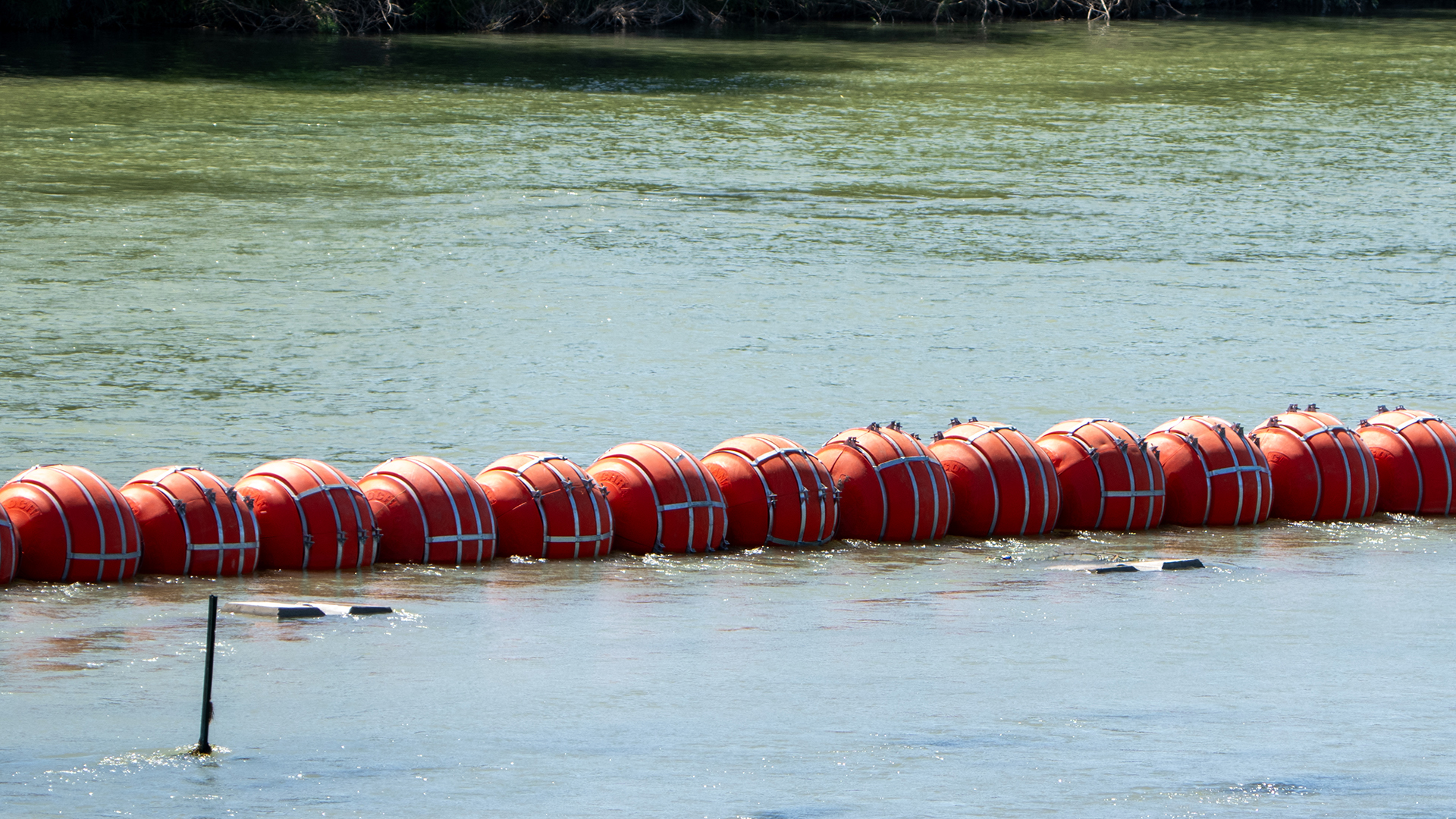
Border Patrol agents ordered the young Senegalese men to wait in the scant shade of desert scrub brush while they loaded a more vulnerable group of migrants — a family with three young children from India — into a white van for the short trip in triple-degree heat to a canopied field intake center.
The migrants were among hundreds who have been trudging this summer in the scorching sun and through open storm gates in the border wall to U.S. soil, following a remote corridor in the sprawling Organ Pipe Cactus National Monument that's among the most desolate and dangerous areas in the Arizona borderlands. Temperatures hit 118 degrees Fahrenheit just as smugglers abruptly began steering migrants from Africa and Asia here to request asylum.
Suddenly, the Border Patrol’s Tucson Sector, which oversees the area, in July became the busiest sector along the U.S-Mexico border for the first time since 2008. It's seen migrants from faraway countries like Pakistan, China and Mauritania, where social media is drawing young people to the new route to the border that begins in Nicaragua. There are large numbers from Ecuador, Bangladesh and Egypt, as well as more traditional border crossers from Mexico and Central America.
“Right now we are encountering people from all over the world,” said Border Patrol Deputy Chief Justin De La Torre, of the Tucson Sector. “It has been a real emergency here, a real trying situation.”
Get Connecticut local news, weather forecasts and entertainment stories to your inbox. Sign up for NBC Connecticut newsletters.
The patrol is calling on other agencies, including Immigration and Customs Enforcement and the Transportation Security Administration, for help in getting migrants "out of the elements and into our processing centers as quickly as possible,” De La Torre said.
During a recent visit, Associated Press journalists saw close to 100 migrants arrive in just four hours at the border wall near Lukeville, Arizona, inside Organ Pipe, as temperatures hit 110 degrees Fahrenheit. The next morning, several hundred more migrants lined up along the wall to turn themselves in.
“Welcome to America, that’s good person,” a young Senegalese man said in his limited English, beaming as he crunched across the desert floor after Tom Wingo, a humanitarian aid volunteer, gave him some water and snacks. “I am very, very happy for you.”
The storm gates in the towering steel wall have been open since mid-June because of rains during the monsoon season. Rushing water from heavy downpours can damage closed gates, the wall, a rocky border road, and flora and fauna. But migrants get in even when the gates are closed, sometimes by breaking locks or slipping through gaps in the wall.
Agents from the Border Patrol's small Ajo Station a half hour's drive north of the border encountered several large groups the first weekend of August, including one of 533 people from 17 countries in the area that includes the national monument, an expanse of rugged desert scattered with cactus, creosote and whip-like ocotillo. The Tucson Sector registered 39,215 arrests in July, up 60% from June. Officials attribute the sudden influx to false advertising by smugglers who tell migrants it’s easier to cross here and get released into the United States.
Migrants are taken first to the intake center, where agents collect people’s names, countries of origin and other information before they are moved to the Ajo Station some 30 miles up a two-lane state highway.
Arrests for illegally crossing anywhere along the nearly 2,000-mile U.S.-Mexico border soared 33% from June to July, according to U.S. government figures, reversing a plunge after new asylum restrictions were introduced in May. President Joe Biden’s administration notes illegal crossings were still down 27% that month from July 2022 and credits the carrot-and-stick approach that expands legal pathways while punishing migrants who enter illegally.
De La Torre said most migrants in the area request asylum, something far from guaranteed with the recent restrictions.
The Ajo Station’s area of responsibility is currently the busiest inside the Tucson Sector, De La Torre said. It includes the border areas of Organ Pipe and the Cabeza Prieta Wildlife Refuge, isolated areas with rough roads and scarce water and shade. They include the Devil’s Highway region, where 14 border crossers in a group of 26 died in 2001 after smugglers abandoned them.
CBP rescues by air and land along the border are soaring this year, with 28,537 counted during the 10-month period ending July 31. That compares with 22,075 for the 12-month period ending Sept. 30, 2022, the agency said. There were 2,776 migrant rescues in July.
The rescues continued in August, including one especially busy day when a Black Hawk helicopter hoisted a 15-year-old Guatemalan boy from a remote southern Arizona mountain to safety. A short time later, the chopper rescued a Guatemalan man who called 911 from the vast Tohono O’odham Nation just east of Organ Pipe.
Some activists recently protested outside the Ajo Station, saying migrants kept in an outdoor enclosure there didn’t have enough shade. Patrol officials say that only adult men waiting to be transported to bigger facilities for processing are kept outside for a few hours, and under a large canopy with fans. Women, children and vulnerable people stay inside. The average wait time the facility is 15 hours.
The influx has also presented challenges for humanitarian groups.
Wingo, a retired schoolteacher working with Samaritanos Sin Fronteras, or Samaritans Without Borders, travels to the border several times a week to fill bright blue plastic barrels at six water stations. He and other volunteers distribute hats, bandanas, snacks and ice-cold bottled water to migrants they encounter.
“A lot of these people go out into the desert not knowing the trouble they are getting themselves into,” said Wingo.
During a recent border visit, Wingo handed bottled water to people from India waiting for help by the wall after a woman they were traveling twisted her ankle. He gave water and granola bars to a Guatemalan couple with three young children who were traveling with a Peruvian man.
Wingo said he pays especially close attention to those who may be more susceptible to the torrid heat, such as pregnant and nursing women and the elderly. He recently encountered an 89-year-old diabetic woman from India about to go into shock. When he called Border Patrol agents on that especially busy day, he said, they asked him to bring the woman himself to their intake center for medical care. The woman is recovering in a Phoenix hospital.
Many others don't survive.
The remains of 43 suspected border crossers were found in southern Arizona in July, about half of them recently dead, according to the non-profit organization Human Borders, which works with the Pima County Medical Examiner's Office to track and map the numbers.
They included two found in Organ Pipe: Hilda Veliz Maas de Mijangos, 36, from Guatemala City, dead about a day; and Ignacio Munoz Loza, 22, of the Mexican state of Jalisco, dead for about a week. Both succumbed to heat exposure.



